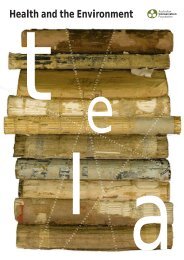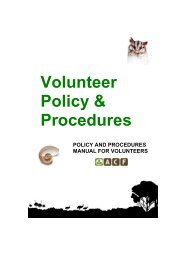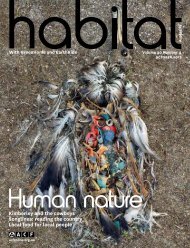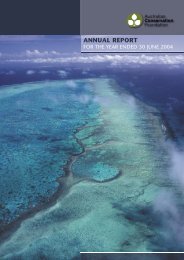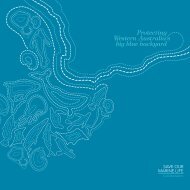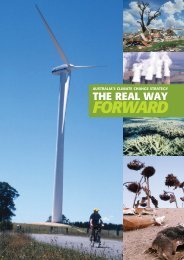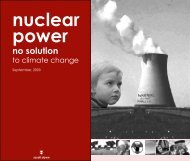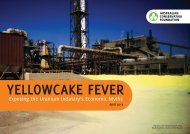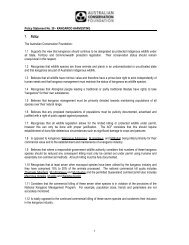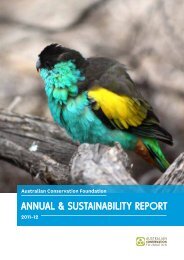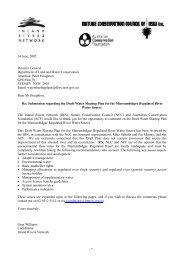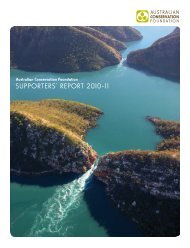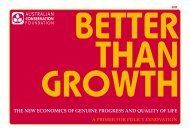Social & Environmental Justice - Australian Conservation Foundation
Social & Environmental Justice - Australian Conservation Foundation
Social & Environmental Justice - Australian Conservation Foundation
- No tags were found...
Create successful ePaper yourself
Turn your PDF publications into a flip-book with our unique Google optimized e-Paper software.
tela: environment, economy and society issue 1 june 1999page22This picture of the self, we believe, neither corresponds with the ideas of the founders ofliberalism, nor matches what we perceive to be the higher aspirations of the people of theworld. Even Robert Nozick, the political philosopher and opponent of John Rawls, whoearlier postulated a narrow conception of justice based on property entitlement, laterembraced an expanded conception of the self:I think what is important is to offer responses as something due, to respond to things as homages totheir reality ... To love the world and to live within it in the mode this involves gives the world ourfullest response in a spirit that joins it. The fullness of this response enlarges us too; people encompasswhat they love — it becomes part of them as its well-being becomes partly theirs. The size of a soul, themagnitude of a person, is measured in part by the extent of what that person can appreciate and love.The bounded self is the self-picture with which we enter into the world as a baby. It is apicture of selfishness rather than self-interest. It is not the self-picture of a mature adult whohas experienced both personal growth and relationships with other people. We see no reasonwhy our sense of relatedness to the world around should be limited to the human world. Nordo we think that there is a simple universal criterion (such as the capacity to experience pain)with which to divide ‘us’ from that which we can treat purely instrumentally as objects for ouruse. We agree with Robyn Eckersley, and with the Canadian philosopher Charles Taylor whowrites, ‘It would greatly help to stave off ecological disaster if we could recover a sense of thedemand that our natural surroundings and wilderness make on us’.A sense of the ethical ‘demand’ our planet makes on us is not foreign to <strong>Australian</strong> thinking.There is no evidence to support the view that <strong>Australian</strong>s think of themselves as isolatedbeings inspired only by greed for material possessions. However it seems very unlikely thatthe necessary action will be taken to preserve the natural wealth of the planet for futuregenerations unless there is a broad consensus that the planet is of special value to us here andnow. That can happen when we define our wellbeing in terms of our own emotionalconnection with the planet.We have to enhance our capacity for ethics in the present and on behalf of ourselves. Purealtruism either on behalf of future generations or different species may be desirable butcannot be relied upon. We often discount the future because, in the end, as Maynard Keynesremarked, we are all dead. But, if Nash’s history is to be believed, the human conception ofself-interest is gradually expanding to include a wider range of others.



